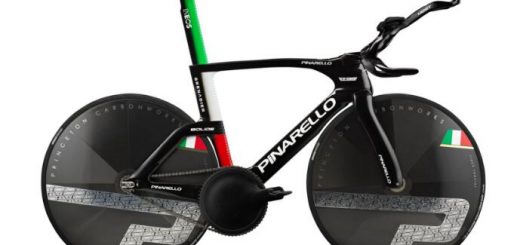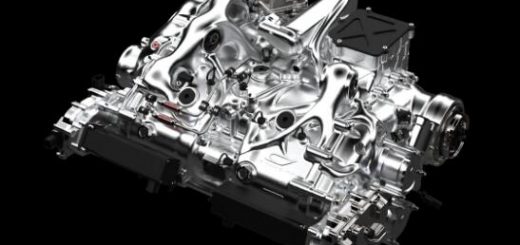Materialise Process Control Uses Artificial Intelligence to Automate Quality Control
Materialise has announced its Process Control software for metal Additive Manufacturing and introduced its Build Processor Software Development Kit (BP SDK). The new solutions are said to enable users take full control of the AM process by applying automated quality control and customising machine’s parameters.
Additive Manufacturing service providers are being challenged to meet growing demands and expectations in terms of part quality and competitive pricing, explains Materialise. A key element of this task is to monitor and control the build process – however, AM users may be missing the right tools and see failed builds, hidden defects inside of their parts, and standard AM parameters that don’t support applications. This can waste machine time, material, and post-processing capacity, leading to unnecessary costs.
 Materialise has announced its Process Control software for metal Additive Manufacturing and introduced its Build Processor Software Development Kit (Courtesy Materialise)
Materialise has announced its Process Control software for metal Additive Manufacturing and introduced its Build Processor Software Development Kit (Courtesy Materialise)
Materialise Process Control enables manufacturers to introduce quality control using data gathered during the Additive Manufacturing process. By analysing and correlating layer data from the AM process, users can identify defective parts before they are sent to post-processing and quality inspection, which can account for 30-70% of a part’s total manufacturing cost. Analysing the layer data also enables users to find the root cause of defects faster, allowing them to optimise the process and adapt their AM parameters. Early scrap detection and root cause analysis can help lower the cost per part by reducing both scrap rates and expensive quality control efforts during post-processing.
“Materialise Process Control uses artificial intelligence to automate quality control, helping our customers save significant time and money,” stated Bart Van der Schueren, CTO of Materialise. “Through collaborations with partners like Phase3D and Sigma Additive Solutions, AM users benefit from a technology-agnostic innovation that offers unparalleled insights into their 3D printing process for continuous improvement.”
As most additively manufactured parts are made of thousands of layers, manually analysing them is time intensive and prone to human error. Materialise Process Control automates the process, providing workers additional time to improve the AM process. It uses artificial intelligence to examine 2D images of the powder bed taken during the AM process.
To integrate complementary data and provide insights in the AM process, Materialise collaborated with Phase 3D and Sigma additive Solutions. Phase 3D technology added height mapping, a form of topographic layer data, whilst Sigma Additive Solutions provided thermal data from the melt pool, the area of the melted material during the metal AM process.
Combining multiple complimentary data sources and analytic methods allows businesses to make faster, data-driven decisions, improving operational efficiency and driving revenue growth. Materialise Process Control allows manufacturers to analyse and correlate layer data from the Additive Manufacturing process. Sigma and Materialise collaborated to integrate PrintRite3D® into Process Control and to make it available in CO-AM, Materialise’s end-to-end software platform for Additive Manufacturing. Sigma’s PrintRite3D suite provides in-process data, including thermal data from the melt pool, yielding layer data that can enable users to find the root cause of defects faster.
Jacob Brunsberg, CEO, Sigma, added, “We’re thrilled to build upon Sigma’s existing collaboration with Materialise, bringing a holistic quality offering to the additive industry and displaying it for the first time at AMUG 2023. Incorporating automated holistic quality offerings on the CO-AM platform will place vital data in the hands of owners and operators, allowing them to make informed decisions regarding the reliability and safety of components they produce.”
![]() Optimising the Additive Manufacturing process
Optimising the Additive Manufacturing process
A build processor (BP) connects AM machines with software for data preparation such as Materialise Magics. It manages machine-specific information and enables users to influence build parameters, which influences how fast a build job is done and determine part properties such as density and surface quality. Suboptimal build parameters increase the cost per part by causing long build jobs, high effort during post-processing, and high scrap rates.
“More and more AM users want to scale up their activities and serve the demand of quality end-part manufacturing. Very often the standard build parameters of a 3D printer don’t match their needs,” added Karel Brans, Senior Director Partnerships at Materialise. “They are looking for ways to improve the machine utilisation rate and achieve consistent quality. With a BP developed for a specific use case, you can push productivity and quality to a whole new level.”
However, until now it was difficult to create BPs and/or adapt them for specific applications; the BP SDK offers a simpler way to achieve that. Machine vendors and manufacturing companies with R&D capacities can use the development platform as a toolkit on their own, rely on Materialise’s AM experience, or choose a collaborative approach. Using proven BP technology, users can shorten the product development cycle, integrate their own APIs, and generate new intellectual property. This open development process supports collaboration and can drive the diversification and optimisation of BPs.
The BP SDK offers AM users the opportunity to deploy BPs tailored to their needs. A tailored BP applies build parameters, hitting the sweet spot of cost-efficiency and part quality for an AM application. It allows users to manufacture complex parts and mass-produce identical or customised products with consistent quality, decreased scrap rate, and shortened lead times. Optimising the AM process will help to make more AM use cases sustainable and drive industrial adoption of the technology. Build processors co-developed with the BP SDK provide full connectivity to CO-AM and Materialise Magics.
Source: METAL AM
For press release, welcome to send to 3D Science Valley at 2509957133@qq.com




Recent Comments